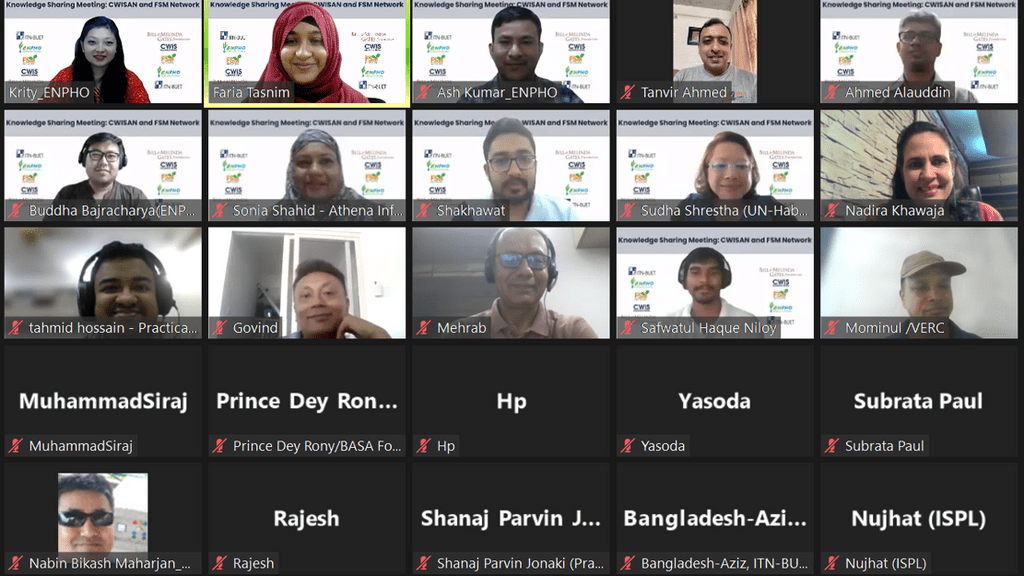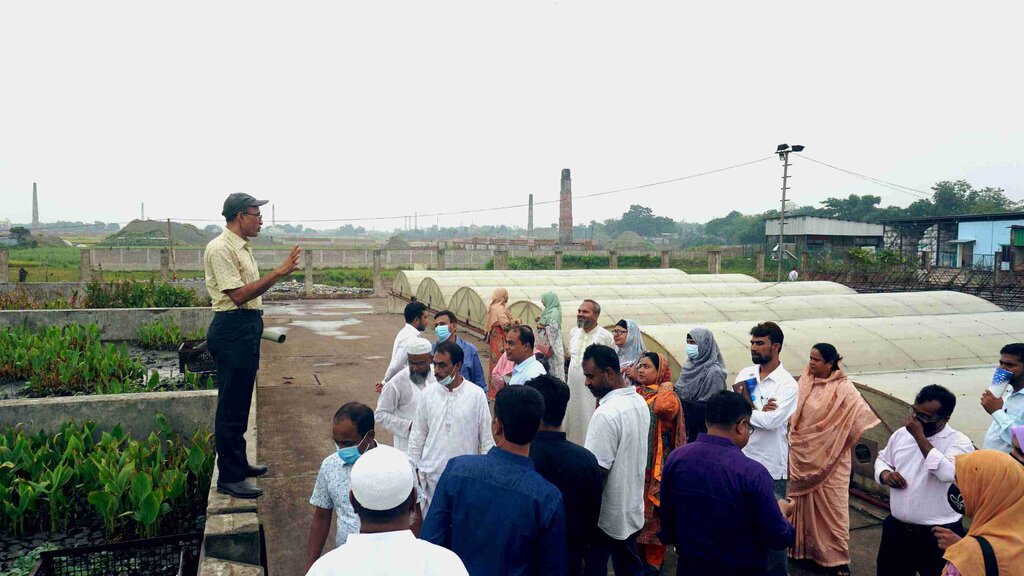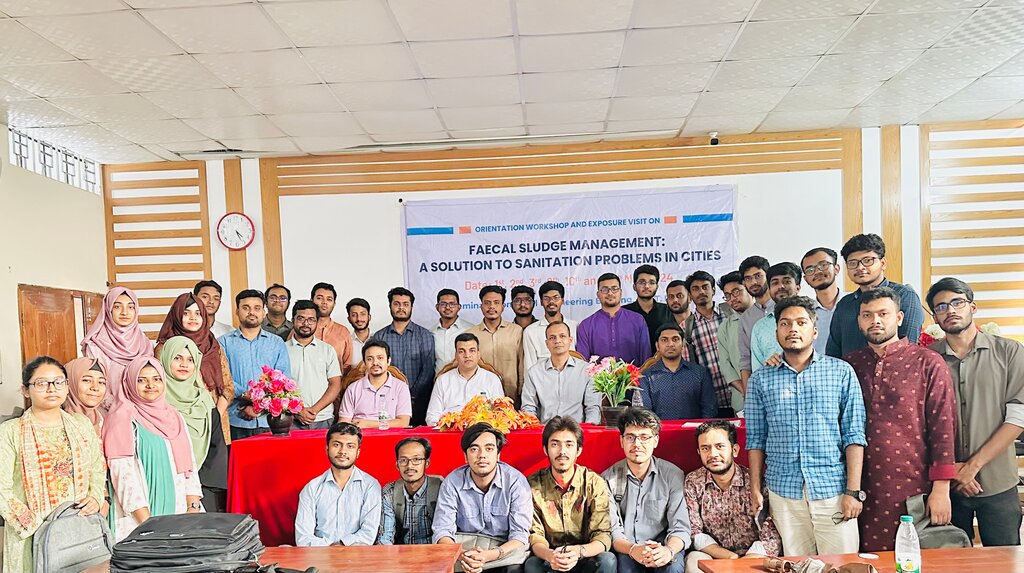Bangladesh, recognized as one of the rapidly urbanizing economies in South Asia, has encountered a significant surge in solid waste generation. To address the issues concerning solid waste management (SWM), ITN-BUET, in collaboration with SNV, conducted a workshop titled ‘Policy and Institutional Review on Solid Waste Management (SWM) in Urban Settings of Bangladesh’ on 26 November 2023.
The workshop aimed to disseminate strategies to improve current SWM practices among sector experts and pertinent stakeholders. Over 40 delegates from various governmental and non-governmental entities, such as the Local Government Engineering Department (LGED), the Department of Public Health Engineering (DPHE), the Department of Disaster Management (DDM), and the National Institute of Local Government (NILG), participated in the event.
Mr. Md. Emdadul Hoq Chowdhury, Joint Secretary of PSB, LGD, and the Chief Guest at the event, emphasized, “Effective solid waste management is crucial and achievable through mitigation and adaptation of related schemes.”
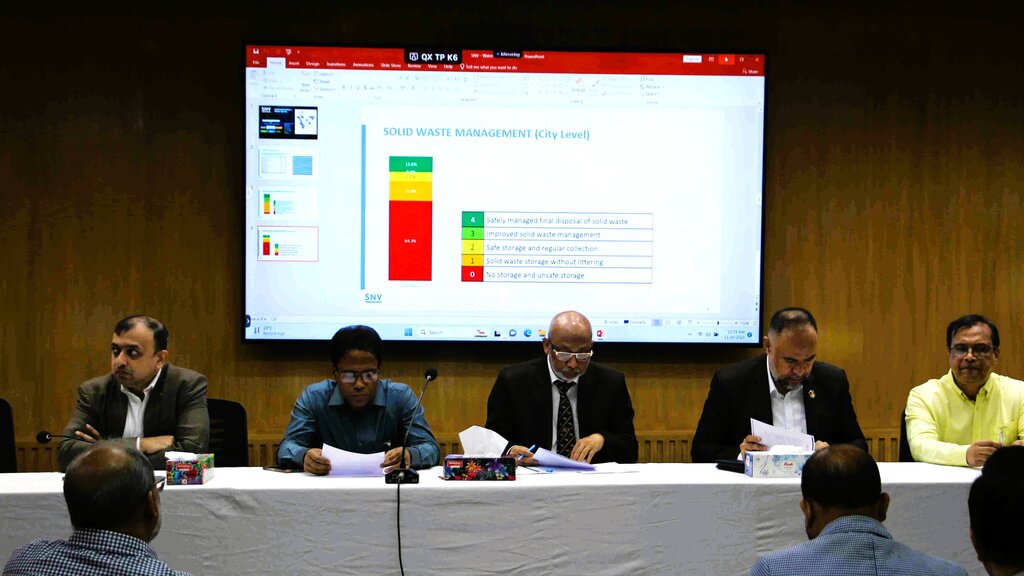
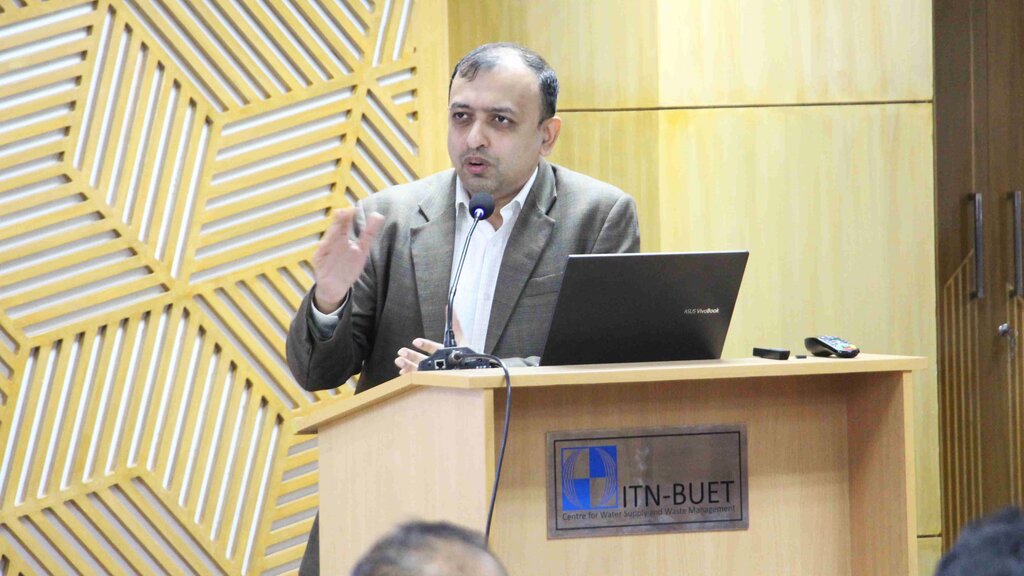

As a special guest, Mr. Md. Shafiqul Islam, Joint Secretary at LGD and Director of NILG, emphasized, “Capacity building is an ongoing process, and we are committed to ensuring its continuity by regularly updating our curriculum, fostering a positive impact on solid waste management.”
Mr. Shahidul Islam, the Water Sector Lead at SNV Bangladesh, delivered a presentation on the Sustainable Urban Water Cycle Project Initiative. Additionally, Ms. Afia Zahin Nita Hossain, Research Associate at ITN-BUET, shared findings from a study examining the present SWM scenario in Lalmonirhat and Shibganj municipalities, and Sylhet city corporation. During the workshop, Mr. Alauddin Ahmed, Project Manager of ITN-BUET, also highlighted the importance of urban solid waste management.
Prof. Dr. Tanvir Ahmed, Director of ITN-BUET, delivered a comprehensive presentation detailing the study’s findings and analyses. He highlighted the need to increase financial resources for Local Government Institutions (LGIs) and stressed the significance of investing in new land for sanitary landfills. He also urged for comprehensive situation assessments and recommended integrating modern SWM technologies, operational methods, and updated regulations into NILG’s curriculum.
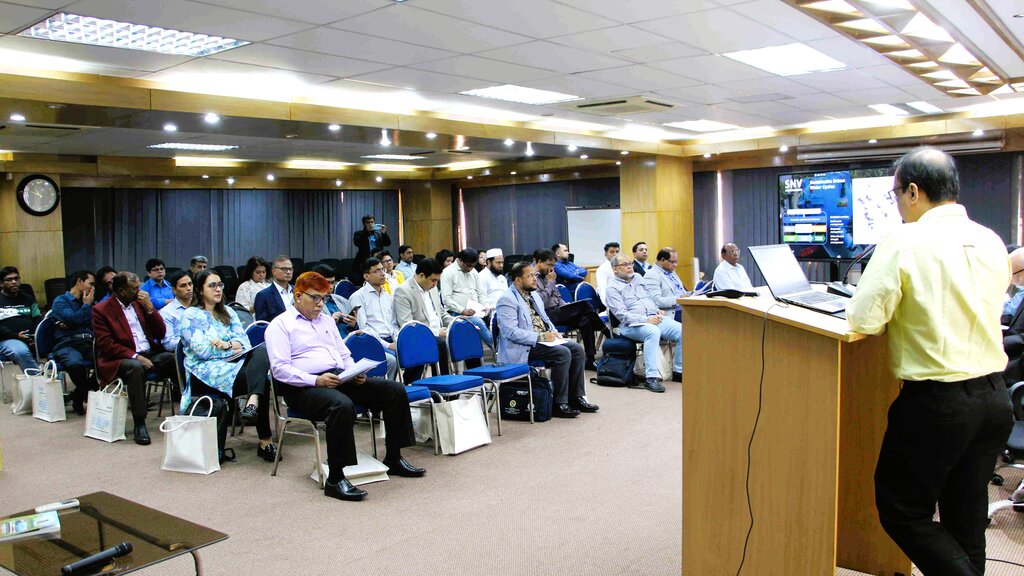
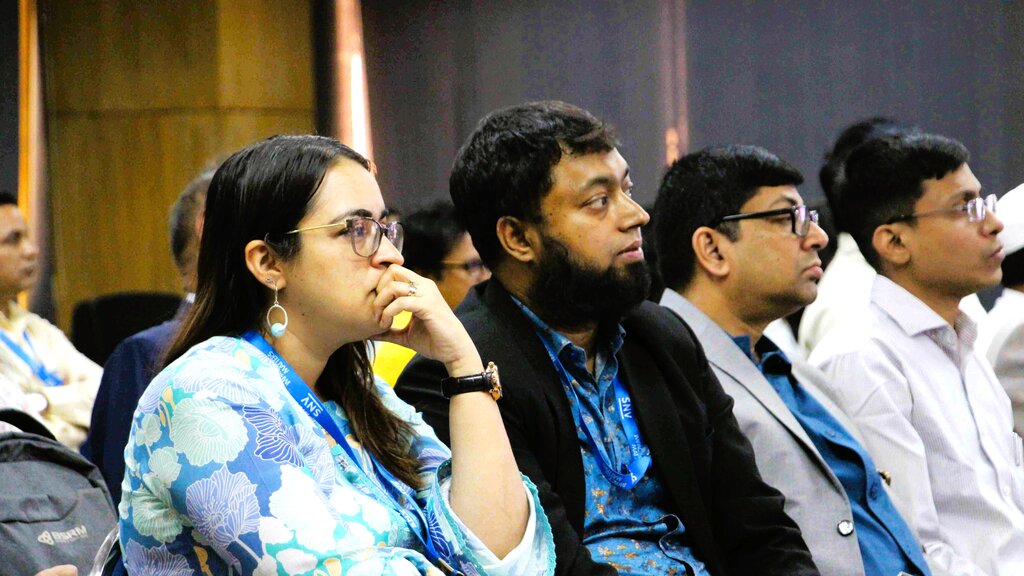
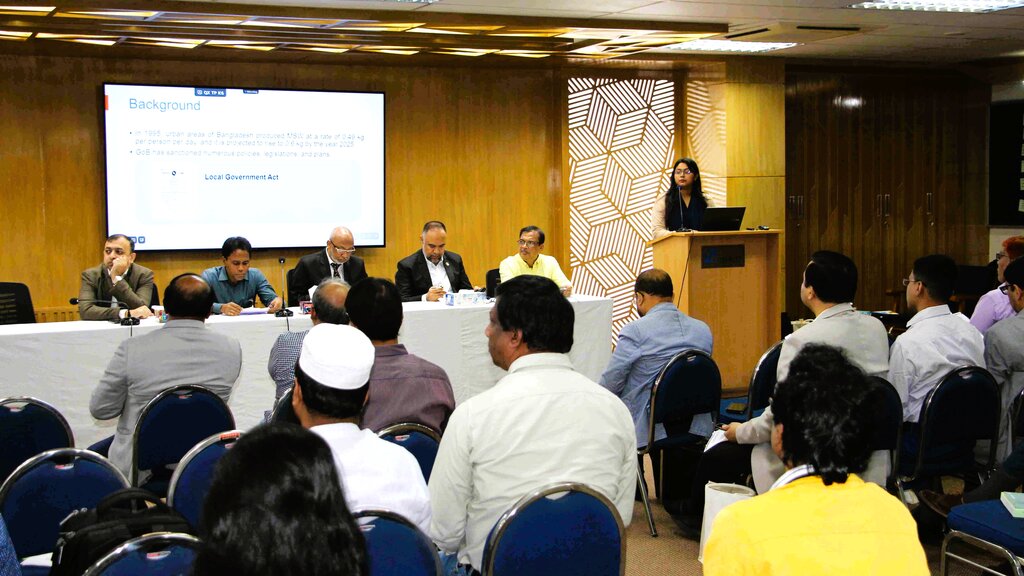
The participants exchanged their views, emphasizing the integration of technical expertise into waste processing and disposal facilities. They recommended the use of GIS-based mapping to align with innovative city frameworks and urged for the incorporation of SWM in educational curricula.
Dr. A.B.M. Sharif Uddin, CEO of Rajshahi City Corporation and the Chief Speaker at the event, shared his insights and highlighted the SWM practices implemented within the city. Emphasizing the need for collaboration, he emphasized, “Engaging experts and implementers in institutional reviews is crucial to improving future policies, thereby ensuring enhanced environmental sustainability.”
Find the report at – Policy and institutional review on Solid waste management in urban settings of Bangladesh – ITN-BUET


.jpg)
